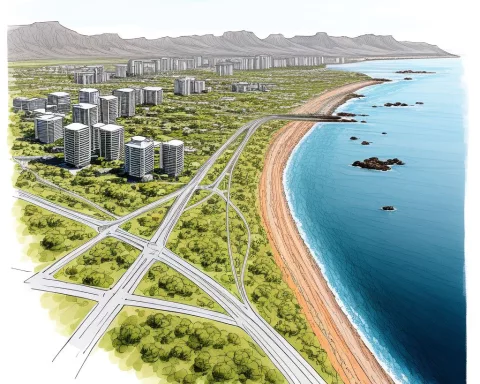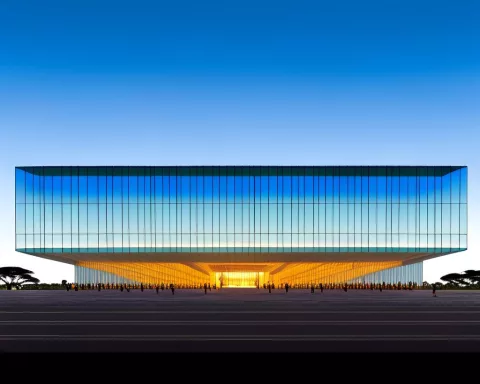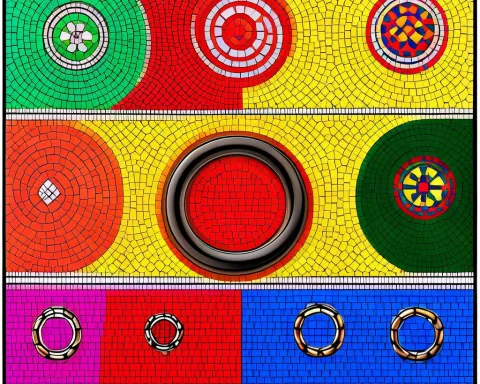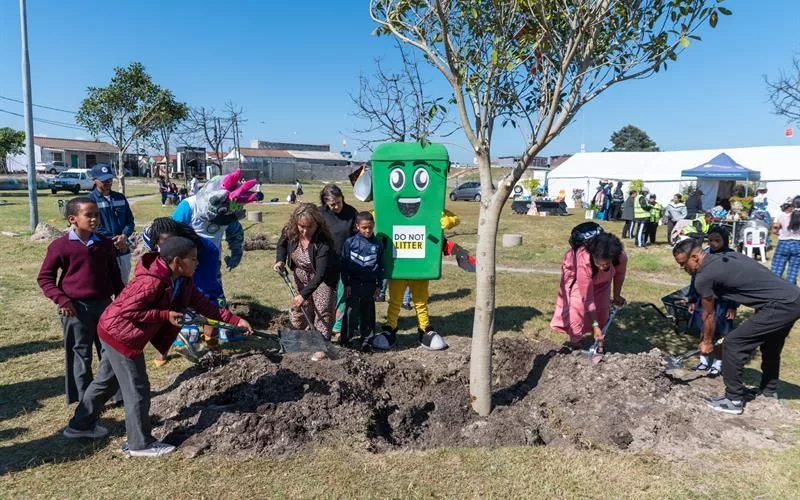The Permit Advisory Forum (PAF) is a new environmental initiative in Cape Town, aimed at promoting public dialogue around environmental issues. The PAF is integrated into the Section 80 Advisory Committee, which oversees continuous compliance and improves the processing of effluent at marine outfalls to protect the coastal ecosystem. The first public meeting is scheduled for Friday, 26th April 2024 at the Council Chambers on the 6th floor of the Civic Centre, providing a chance for experts, stakeholders, and the general public to come together and shape the water-related future of Cape Town.
What is the Permit Advisory Forum in Cape Town?
The Permit Advisory Forum (PAF) is a new environmental initiative in Cape Town that aims to promote public dialogue around environmental issues. It is a platform for experts, stakeholders, and the general public to come together and shape the water-related future of Cape Town. The PAF is integrated into the Section 80 Advisory Committee, which oversees continuous compliance and improves the processing of effluent at marine outfalls to protect the coastal ecosystem. The first public meeting is scheduled for Friday, 26th April 2024 at the Council Chambers on the 6th floor of the Civic Centre.
A Novel Venture in Environmentalism
Cape Town, with its forward-thinking approach to environmental matters, is ready to set in motion a unique environmental initiative. The Water and Sanitation Directorate of the city has scheduled the inaugural gathering of the Permit Advisory Forum (PAF) on Friday, 26th April 2024. The agenda for the first public meeting is expected to focus on conditions related to the marine outfalls discharge permit, specifically discussing issues around marine outfalls at Camps Bay, Hout Bay, and Green Point.
The city’s officials are promoting public dialogue around this crucial issue by inviting all interested parties to join the event. The meeting will take place in the Council Chambers on the 6th floor of the Civic Centre where experts, stakeholders, and the general public will come together to shape the water-related future of Cape Town. This demonstrates the city’s determination to involve the community and maintain transparency in addressing environmental issues.
The Genesis of the PAF and Its Integration into the Section 80 Advisory Committee
The creation of the PAF is the outcome of extensive public interaction processes initiated by the city. The motive behind this was to blend the operations of the PAF with the existing Section 80 Advisory Committee, a strategy that, in the city’s view, would streamline all current and future discussions more effectively. This initiative has the approval of the Minister of Forestry, Fisheries, and Environmental Affairs (DFFE), who expressed confidence in the Section 80 Advisory Committee’s ability to operate as a dedicated PAF overseeing continuous compliance.
The Mayor’s Advisory Committee: Water Quality in Wetlands and Waterways, supports this pioneering method and has emerged as a distinctive innovation in water governance within South Africa. This committee, entrusted with the function of the Marine Outfalls Permit Advisory Forum, is a testament to the city’s pioneering approach to environmental issues. A broad team of experts in water activism, environmental management, and engineering is on board to provide input on the city’s water policies and infrastructure investments.
Amplifying Public Participation and Protecting the Coastal Environment
Councillor Alex Lansdowne, the deputy chairperson of the Mayor’s Advisory Committee: Water Quality in Wetlands and Waterways, underscored the importance of these discussions. He encouraged all concerned parties to actively participate in these public forums, noting their role as platforms for ongoing dialogue. The councillor articulated the city’s pledge to improve the processing of effluent discharged at the outfalls to protect the coastal ecosystem.
Balancing the demands of urban development and environmental conservation, Cape Town, with its rich coastal ecosystem, finds itself in a unique position. The establishment of the PAF and the active inclusion of the public in this initiative is a significant step in the direction of integrating these two factors. It underscores the city’s willingness to listen to its citizens and involve them in shaping the future.
The PAF meeting serves as a symbol of participatory democracy, creating a space where technical expertise and public sentiment can unite for the shared goal of environmental stewardship and sustainability.
Inviting Public Engagement in Environmental Governance
However, this is just the beginning of Cape Town’s journey towards a more inclusive approach to environmental governance. The forthcoming PAF meeting is an open call to all who wish to actively influence Cape Town’s environmental policies. It provides a chance to be part of a city that is breaking new ground in the quest for environmental sustainability.
When is the first public meeting of the Permit Advisory Forum (PAF) in Cape Town?
The first public meeting of the Permit Advisory Forum (PAF) in Cape Town is scheduled for Friday, 26th April 2024.
What is the Section 80 Advisory Committee and how is it integrated with the PAF?
The Section 80 Advisory Committee oversees continuous compliance and improves the processing of effluent at marine outfalls to protect the coastal ecosystem. The PAF is integrated into the Section 80 Advisory Committee, with the aim of streamlining all current and future discussions more effectively.
Who can participate in the PAF meeting?
The PAF meeting is open to experts, stakeholders, and the general public who wish to shape the water-related future of Cape Town.
What issues will be discussed at the first PAF meeting?
The first public meeting is expected to focus on conditions related to the marine outfalls discharge permit, specifically discussing issues around marine outfalls at Camps Bay, Hout Bay, and Green Point.
Why is public participation encouraged in the PAF initiative?
Public participation is encouraged in the PAF initiative to promote public dialogue around environmental issues and to involve the community in addressing environmental issues, maintaining transparency in the process.
What is the significance of the PAF initiative in Cape Town?
The PAF initiative in Cape Town is a unique environmental initiative aimed at promoting public dialogue around environmental issues. It demonstrates the city’s determination to involve the community and maintain transparency in addressing environmental issues. The PAF meeting serves as a symbol of participatory democracy, creating a space where technical expertise and public sentiment can unite for the shared goal of environmental stewardship and sustainability.












